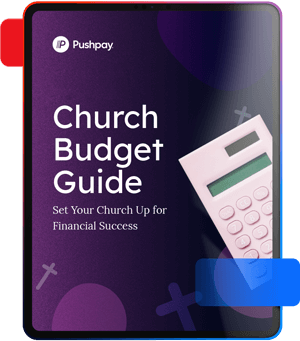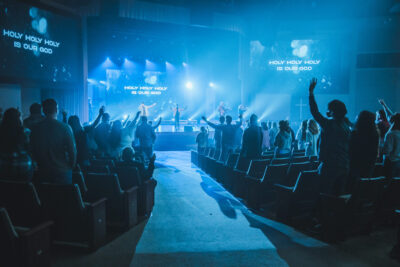Event day coordination
The day of the event has arrived, and it’s time to put all your planning into action. Effective coordination on the event day is crucial to ensure everything runs smoothly and as planned.
Setup and logistics
Starting the day with a well-organized setup sets the tone for a successful event.
- Arrive early and oversee setup: Make sure you and your key team members arrive well before the event starts. This allows ample time to oversee the setup, address any last-minute issues, and ensure everything is in place.
- Ensure equipment and materials are ready: Double-check that all equipment is working correctly and materials are ready. This includes audio-visual equipment, seating arrangements, registration tables, signage, and any other logistical elements. Conduct a final walkthrough to ensure all areas are set up as planned.
On-the-day management
Managing the event on the day requires clear communication and coordination with your team and volunteers.
- Coordinate with volunteers and team members: Brief your team and volunteers on their specific roles and responsibilities. Ensure everyone knows who to report to and how to handle any issues that arise. Keep communication channels open, whether through radios, group messaging apps, or regular check-ins.
- Follow the planned schedule: Stick to the schedule you’ve created, but remain flexible to handle any unexpected changes. Keep track of time to ensure each segment of the event starts and ends as planned. Make announcements as needed to keep attendees informed and engaged.
By overseeing the setup meticulously and managing the day’s activities effectively, you’ll create a seamless and enjoyable experience for everyone involved. After the event, don’t forget to evaluate its success and gather feedback to improve future events.
Post-event wrap-up
Once your event is over, it’s important to wrap things up efficiently and reflect on what worked well and what could be improved.
- Clean up and pack away: Organize your team to clean up and pack away equipment and materials. Ensure the venue is left in good condition.
- Evaluate the event: Hold a debrief meeting with your team to discuss the event. Gather feedback from attendees through surveys or informal conversations to understand their experiences.
- Celebrate your success: Take time to celebrate your hard work and the success of the event with your team. Recognize the efforts of everyone involved and express your appreciation.
Post-event evaluation
The event might be over, but your work isn’t done yet. Evaluating the event helps you understand what worked well and what could be improved, ensuring even greater success for future events.
Collecting feedback
Gathering feedback from both attendees and team members is crucial for gaining valuable insights.
- Distribute surveys to attendees and team members: Create a simple survey to capture the thoughts and experiences of your attendees and team. Keep it concise and focus on key areas such as overall satisfaction, favorite aspects, and suggestions for improvement. Distribute these surveys shortly after the event while the experience is still fresh in their minds. Online tools like Google Forms or SurveyMonkey can make this process easy and efficient.
- Gather insights for improvement: Encourage honest feedback and let people know their input is valued. Use open-ended questions to capture detailed responses. For instance, ask what they enjoyed most about the event and what they think could be done differently next time. Gathering diverse perspectives will provide a well-rounded view of the event’s impact.
Analyzing Results
Once you’ve collected the feedback, it’s time to dive into the data and see what it tells you.
- Review feedback and assess success: Look for common themes and patterns in the responses. What aspects of the event received the most praise? Were there any recurring criticisms or suggestions? Use this information to gauge the overall success of your event. Pay attention to both the quantitative data (e.g., ratings) and qualitative comments to get a comprehensive understanding.
- Document lessons learned: Take detailed notes on the feedback and your own observations. Document what went well and what didn’t, along with any unexpected challenges you encountered. This documentation will be invaluable for planning future events, helping you avoid past mistakes and build on your successes. Consider creating a post-event report that summarizes your findings and outlines actionable steps for improvement.
By thoroughly evaluating your event and learning from the feedback, you can continuously improve your planning and execution process. This dedication to reflection and growth will ensure that each event you host is better than the last.
FAQs
Planning a church event can come with many questions. Here are answers to some of the most frequently asked questions to help you navigate the event planning process successfully.
How early should I start planning a church event?
Ideally, you should begin the planning process for your church event at least three to six months in advance. This timeline allows you to secure the venue, recruit volunteers, manage event details, and coordinate with church leadership. For larger conferences or fellowship gatherings, starting earlier gives you more flexibility with budgeting, registration, and marketing strategy.
How can I make sure my event stays within budget?
Creating a detailed budget is one of the most important parts of church event management. Begin by listing potential expenses such as catering, decorations, music, and room setup. Allocate funds for essentials first, and always set aside a contingency fund for unexpected costs. Lean on volunteers to reduce staffing expenses, and explore online giving or fundraising activities within your ministry to raise additional funds when needed.
What are the best ways to promote my church event?
Promoting your event is crucial to reaching your target audience and encouraging community participation. Effective marketing strategies include:
-
Church calendar & announcements: List your event on the church calendar and share updates during services.
-
Social media & email: Create engaging content, post event details, and send reminders to members.
-
Community outreach: Use flyers, community boards, and local media outlets to spread the word.
-
Website landing page: Build an event page with clear registration details to drive signups.
How can I engage and coordinate volunteers effectively?
Volunteers are at the heart of successful church events. To keep them engaged:
-
Provide clear communication about responsibilities.
-
Assign roles that match their skills and ministry interests.
-
Offer training and support before the event day.
-
Recognize their contributions through thank-you notes, fellowship gatherings, or small tokens of appreciation.
What should I do if something goes wrong on the event day?
Even with detailed planning, unexpected challenges can arise. Stay calm, communicate clearly with your team, and use your contingency plan. Quick decisions, strong leadership, and prayerful insight will help you resolve issues without disrupting attendees’ experience. After the event, document what happened and use the lessons learned to improve future coordination.
How do I handle event registration and attendees?
Setting up a simple registration process makes it easier to manage attendees. Consider online registration tools, a sign-up form on your church website, or a page within your church management software. Collecting attendee details ahead of time helps with setup, catering, seating arrangements, and creating a welcoming environment.
What role does fellowship and community play in church events?
Church events aren’t just about logistics — they’re about building community. Creating space for fellowship, prayer, and worship strengthens relationships among members and welcomes new participants into your ministry. Intentionally include time for connection and interaction in your event details.
What are some tips for event setup and coordination?
On event day, arrive early to oversee setup. Double-check sound systems, decorations, seating, registration tables, and catering arrangements. Keep your planning team and volunteers aligned with a clear schedule. Good coordination ensures attendees feel cared for and the event runs smoothly.
How can I measure if my church event was successful?
A successful church event goes beyond attendance numbers. After the event, gather feedback from participants, volunteers, and staff members. Evaluate whether you achieved your goals — whether that was fundraising, community outreach, or spiritual growth. Document event insights and expectations to guide the planning process for future events.
Copy and paste this worksheet into a Google Doc and use it to plan and organize your church event!
Initial Planning
Define Purpose and Goals
- Event Purpose: ____________________________________________
- Event Goals: ______________________________________________
Form Planning Team
- Team Leader: ______________________________________________
- Team Members and Roles: ___________________________________
Budgeting and Fundraising
Create Budget
- Estimated Expenses:
- Venue: ________________________________
- Catering: ______________________________
- Decorations: ____________________________
- Marketing: _____________________________
- Equipment: _____________________________
- Miscellaneous: __________________________
- Total Budget: ____________________________
Plan Fundraising Activities
- Fundraising Ideas:
- Fundraising Goals: _________________________
- Community Engagement Strategies: ________________________________________
Venue Selection
Identify and Book Venue
- Venue Options:
- Selected Venue: ___________________________
- Booking Date: _____________________________
- Venue Contact Person: ______________________
- Important Details:
- Size: ___________________________________
- Location: _______________________________
- Accessibility: ____________________________
- Amenities: _______________________________
Program and Activities Planning
Design Program
- Event Agenda:
- Opening Session: _________________________
- Main Activities: ___________________________
- Closing Session: ___________________________
- Additional Activities:
Coordinate Activities
- Assigned Roles:
- Activity Coordinator: _______________________
- Tech Support: ____________________________
- Volunteer Manager: ________________________
- Contingency Plans:
Promotion and Marketing
Develop Marketing Plan
- Target Audience: ___________________________
- Promotional Channels:
- Social Media: _____________________________
- Email Newsletters: _________________________
- Church Announcements: ____________________
- Community Boards: ________________________
- Local Media: _____________________________
Engage Community
- Word-of-Mouth Strategies: ________________________________________
- Engaging Content Ideas: ___________________________________________
Event Day Coordination
Oversee Setup
- Setup Checklist:
- Audio-Visual Equipment: ___________________
- Seating Arrangements: _____________________
- Registration Table: ________________________
- Signage: ________________________________
- Arrival Time: _______________________________
Manage Operations
- Volunteer Coordination Plan: _______________________________________
- Schedule Overview: _______________________________________________
- Communication Plan: ______________________________________________
Post-Event Evaluation
Collect and Review Feedback
- Feedback Methods:
- Surveys: __________________________________
- Informal Conversations: _____________________
- Key Questions to Ask:
- What did you enjoy most? ___________________
- What could be improved? ___________________
Analyze Results and Document Lessons Learned
- Review Findings:
- Positive Aspects: ___________________________
- Areas for Improvement: _______________________
- Lessons Learned:









